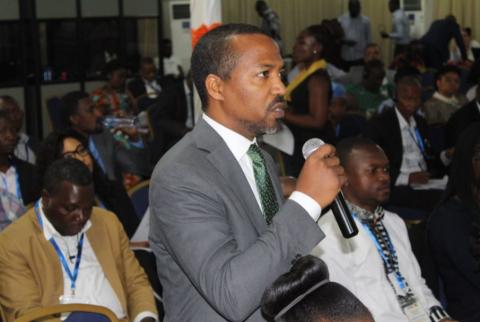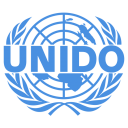SUSTAINABLE ENERGY SOLUTIONS SCRUTINIZED AT THE ECREEE REGIONAL OFF-GRID ELECTRIFICATION PROJECT WORKSHOP
ECREEE – Accra, June 26, 2018 – The second regional workshop under ECREEE’s Regional Off-Grid Electrification Project (ROGEP) has opened in the Ghanaian capital Accra. The theme of the workshop is ‘promoting investments in standalone solar systems in the West Africa and Sahel regions’. The two-day forum brings together a diverse group of stakeholders in the energy sector from the ECOWAS member states and beyond. ROGEP is one of ECOWAS Community development projects which aims to promote private sector investment with a market-based approach in expanding off-grid electricity access. The main objective of ROGEP is to enhance shared capacity, institutions and knowledge to jointly increase electricity access to households, businesses and communities using modern standalone solar technologies.
Presiding over the official opening ceremony, the Ghanaian Deputy Minister of Energy, Honourable, Owuraku Aidoo, expressed his government’s commitment to the ROGEP initiative. These he said would enable the private sector, especially the local companies to take up the challenge in creating jobs and improve the local economies. Honourable Aidoo informed delegates that the government of Ghana is ready to embrace and support investments that are innovative and sustainable to deliver affordable energy services, particularly to the poor remote communities.
The Commissioner for Energy and Mines at the ECOWAS Commission, Mr. Sediko Douka described the project as very challenging which requires the establishment of a regional market that would attract companies to invest in the project. Commissioner Douka pointed out that the project would also provide an opportunity for sub-regional businesses to make universal access to energy a reality by bringing it to the doorsteps of the population. The ECOWAS Commissioner believes that access to energy would help to remove member countries from poverty and stimulate development.
Speaking at the opening ceremony, Practice Manager, Energy and Extractive Global Practice, World Bank Group, Wendy Hughes, singled out solar companies as key to the success of the new endeavour. She reminded representatives of such companies that ROGEP is designed to support them in setting up or expanding their businesses. Ms. Hughes pointed out that project would support local entrepreneurs through seed funding, provide business to business support, and through ECREEE, set up a business incubator to help the companies succeed.
In his welcome address, the Executive Director of ECREEE, Mahama Kappiah, noted that access to affordable, and reliable modern energy would contribute to human development as well as attract investments in a bid to create jobs for the ECOWAS population. The director also informed the delegates that their goal is directed towards universal access for all citizens by 2030. He further disclosed that ROGEP is determined to establish a regional market for off-grid products and services. Mr. Kappiah said the ultimate objective of this initiative was designed to increase electricity access through improved uptake of off-grid solar products and services by households and institutions in West Africa through harmonized regional approach. Mr. Kappiah informed delegates that ROGEP would promote both public and private sector participation in expanding off-grid electricity access. This he said would be accomplished through support in the forms of credit lines through financial institutions, grants to private companies and technical assistance support to public institutions among others.
Special focus was also given to the importance of mainstreaming gender in the project, taking into consideration significant regional, institutional and sectoral challenges in closing opportunity and outcome gaps between women/girls and men/boys that the region faces. According to data women are the most affected by the lack of electricity and therefore, gender mainstreaming recognizes the needs, experiences and different interests of women and men and involves all stakeholders and partners, both, to collectively tackle the issue at hand.
A group of Journalists from the ECREEE Network of Journalists also took part in the workshop. The forum served as a training program for the group mainly from Anglophone and Lusophone ECOWAS member countries designed to acquaint them on the ROGEP as well as create more visibility of the project in the ECOWAS region. It would be recalled that the first ROGEP meeting was held in Dakar, ahead of the implementation phase of the project scheduled to begin in the first quarter of 2019. The project will cover all 15 ECOWAS member states, and four other non-ECOWAS countries namely, Mauritania, Chad, Central African Republic and Cameroon.
Energy experts believe that lack of access to sustainable energy services is a recipe for poverty, social instability and underdevelopment; hence ECREEE’s continued dedication to removing barriers to a viable regional energy market. The Center is currently focused on mitigating factors that are intricately hindering the implementation of regional strategies aimed at fostering socio-economic development by attracting foreign investment and providing basic social services for citizens of the region.
Presentations regarding the components and sub-components of the project can be found bellow and they are available to downaload.





